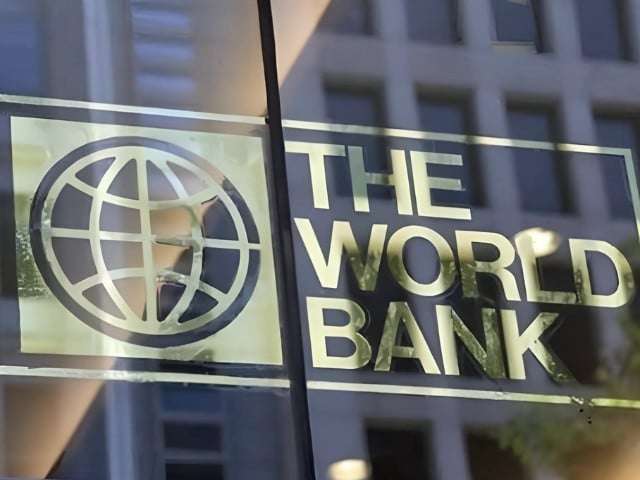
|
Getting your Trinity Audio player ready...
|
Pakistan’s growing fiscal challenges have prompted the World Bank to propose a significant overhaul of the country’s debt management system. The Washington-based lender has emphasized the need for a permanent Debt and Risk Management Committee (DRMC), aimed at addressing the fragmentation in debt management and mitigating the increasing fiscal risks. The committee, according to the World Bank’s recommendations, would be accountable to Pakistan’s Parliament, ensuring enhanced transparency and accountability in loan-related decisions.
The proposal comes at a time when Pakistan is grappling with a high debt burden and an urgent need for sound financial management to ensure the country’s economic sustainability.
The Need for Reform: Fragmentation and Fiscal Risks in Pakistan’s Debt Management
Pakistan’s existing debt management system faces serious fragmentation, leading to inefficient decision-making and poor coordination between various government agencies. The lack of centralized management results in inconsistent debt recording and a disjointed approach to handling public debt, both of which hinder the country’s ability to manage fiscal risks effectively.
Current Debt Management System in Pakistan
At present, debt management in Pakistan is divided between several entities, such as the Economic Affairs Ministry, the State Bank of Pakistan, and the Debt Management Office (DMO). This division often causes conflicts and overlaps, which undermine the ability to assess debt risks in a comprehensive manner. External loans, including those from the International Monetary Fund (IMF), UAE, Kuwait, and a $4.5 billion Chinese trade finance facility, are often recorded separately, which complicates efforts to maintain an accurate and unified view of the country’s debt obligations.
Moreover, intra-ministerial and inter-ministerial conflicts have been major barriers to effective debt management. The lack of coordination between the finance, planning, and economic affairs ministries makes it difficult to align debt strategies with macro-economic goals and fiscal policies.
World Bank’s Proposal: Establishing a Permanent Debt and Risk Management Committee
The World Bank has recommended the creation of a permanent Debt and Risk Management Committee (DRMC) to address these challenges. The DRMC would play a critical role in ensuring that Pakistan’s borrowings are sustainable, transparent, and aligned with fiscal policies. It would also ensure that new loans are in line with macroeconomic balances and the country’s overall financial health.
Functions of the Debt and Risk Management Committee
The DRMC would be tasked with overseeing Pakistan’s debt management processes, ensuring that the country borrows responsibly, and monitoring risks associated with debt. Key functions would include:
- Coordinating debt-related decisions across government departments and agencies.
- Ensuring that debt strategies align with the country’s financial and macroeconomic policies.
- Promoting transparency in public debt recording and disclosure.
- Providing oversight of loan guarantees and on-lending activities, ensuring fiscal risks are identified and mitigated.
Debt Sustainability: A Central Focus of the Reform
The World Bank’s proposal is aimed at addressing the growing debt burden that Pakistan faces. The country’s total public debt surged to over Rs71 trillion (approximately 67% of Pakistan’s GDP) in the last fiscal year, creating mounting concerns about debt sustainability.
The World Bank has emphasized that Pakistan needs to adopt a cost-risk analysis approach when considering new loans. This would help to ensure that debt management is not only transparent but also prudent and aligned with the country’s long-term fiscal goals.
Secondary Legislation to Address Debt Issues
In its proposal, the World Bank has urged Pakistan’s finance ministry to introduce secondary legislation to address the “high debt burden” and the fiscal risks associated with the country’s borrowing practices. This would involve strengthening debt management frameworks, establishing clearer debt management objectives, and improving debt strategy formulation.
The Role of the DRMC in Debt Management and Public Accountability
The proposed DRMC would also play a crucial role in promoting public accountability and improving the management of debt-related fiscal risks. By ensuring that all borrowing and loan guarantees are well-documented and aligned with the country’s financial goals, the DRMC would contribute to more efficient fiscal management.
Strategic Oversight and Coordination
The DRMC would be responsible for providing strategic oversight and coordinating debt management activities across multiple government stakeholders, including provincial authorities. This would help prevent overlaps, conflicts, and inefficiencies in debt-related decisions, allowing Pakistan to manage its debt in a more coherent and effective manner.
Enhancing Debt Data Transparency and Reporting Mechanisms
A key recommendation of the World Bank’s proposal is to develop a centralized debt data repository. This would allow the Debt Management Office (DMO) to access accurate, up-to-date information on public debt, enabling better decision-making and more effective debt monitoring.
The transparency of public debt is another area of focus. The Ministry of Economic Affairs has been criticized for its delayed debt reporting, with the most recent quarterly debt report available for March 2024 and the last annual debt report being two years old. The proposed DRMC would ensure that public debt data is available regularly, ensuring better accountability in managing the nation’s debt portfolio.
Pakistan’s Country Partnership Framework and Debt Management Initiatives
The World Bank’s Country Partnership Framework for Pakistan, which is set for approval, will provide $20 billion in funding for the period from 2025 to 2035. The framework outlines the World Bank’s commitment to helping Pakistan reduce the risks associated with its large debt portfolio.
According to the framework, the World Bank will continue to provide support for the establishment of a unified and coherent debt management function, helping Pakistan manage its public debt in a way that reduces costs and risks. The DRMC will play a central role in achieving these goals, providing strategic oversight and ensuring that debt management aligns with the country’s fiscal and monetary policies.
Future Prospects: Strengthening Fiscal Health and Ensuring Economic Stability
The establishment of a permanent DRMC would significantly improve Pakistan’s ability to manage its growing debt burden. The committee would offer a systematic and transparent approach to debt management, addressing the fragmentation issues that have plagued the system for years. By coordinating debt management efforts across various government departments, the DRMC could help Pakistan reduce fiscal risks and maintain economic stability in the long term.
Moreover, the creation of the DRMC would enhance investor confidence in Pakistan’s ability to manage its fiscal challenges, which could ultimately attract more foreign investments and contribute to the country’s economic recovery.
FAQs
1. What is the DRMC, and why is it important for Pakistan?
The Debt and Risk Management Committee (DRMC) is a proposed body aimed at improving coordination and transparency in Pakistan’s debt management. It is important because it will help ensure that borrowings are sustainable, transparent, and aligned with fiscal policies, reducing risks and improving financial stability.
2. How will the DRMC improve debt management in Pakistan?
The DRMC will provide strategic oversight, coordinate efforts across various ministries, and ensure that debt strategies align with macroeconomic goals. It will also promote transparency and better data reporting, which will help mitigate risks associated with borrowing.
3. What is the World Bank’s Country Partnership Framework for Pakistan?
The Country Partnership Framework is a long-term plan outlining the World Bank’s support for Pakistan, including an estimated $20 billion in funding over the next decade. This framework focuses on strengthening Pakistan’s debt management and reducing fiscal risks.
4. How does fragmentation in debt management affect Pakistan?
Fragmentation leads to poor coordination, conflicts between ministries, and a lack of comprehensive debt data, making it difficult to assess the full scope of the country’s debt obligations and manage risks effectively.
5. How will the proposed DRMC help manage fiscal risks?
The DRMC will help identify debt-related fiscal risks, ensure that new loans align with macroeconomic policies, and improve debt data transparency, allowing for more effective risk management and better financial planning.
ALSO READ
https://skipper.pk/2025/01/14/pakistan-issues-panda-bonds-hong-kong-business-ties/






